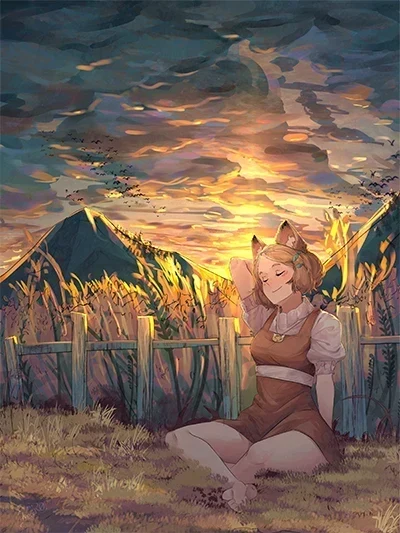Welcome to the Dollhouse (1995)
An awkward seventh-grader struggles to cope with inattentive parents, snobbish class-mates, a smart older brother, an attractive younger sister and her own insecurities in suburban New Jersey.
Happiness (1998)
A woman breaks up with her boyfriend, he thinks it's because he's fat. A man is unable to tell her next door neighbor he finds her sexually attractive. An old couple wants to split up, but they don't want to get a divorce. A therapist masturbates to teen magazines. An 11 year old kid is insecure about the fact that he hasn't c*m yet. Office workers try to recall the face of a coworker who recently died. A woman is sure she has everything she could ever want. The lives of these individuals intertwine as they go about their lives in their own unique ways, engaging in acts society as a whole might find disturbing in a desperate search for human connection. Spoiler Alert - The kid cums at the end
Life During Wartime (2009)
In writer and director Todd Solondz's part sequel/part variation on his acclaimed film Happiness, three sisters and the people they love struggle to find their places in an unpredictable and volatile world where the past haunts the present and imperils the future.
Todd Solondz was born in Newark, New Jersey. One of his earliest jobs in the film industry was when, as a young man, he worked as a messenger for the Writers' Guild of America. During this time, he wrote several screenplays.
Solondz's first color film with sync sound was the short "Schatt's Last Shot" (1985). Solondz played a high schooler who wants to get into Stanford, but cannot because his sadistic gym teacher fails him. He also has no luck seducing the girl he desires. It was a student film, and is still screened at NYU, where Solondz made it.
Solondz's first feature was Fear, Anxiety & Depression (1989), a piece about a writer (Solondz) writing a play and sending it to Samuel Beckett.
Solondz found great critical acclaim with his second feature, Welcome to the Dollhouse (1995), a film about the cruelty of junior high school, parents, adult figures, and suburban life. The film won awards at Sundance, Berlin, and countless other festivals for its cruel realism, bitter humor, and unflinching portrayal of adolescence.
His third feature effort, Happiness (1998), was a wildly edgy and provocative film. The film revolves around a group of people who are miserable in their conventional lifestyles and pursue happiness in various forms of perverse sexuality. It featured a murderer, a male feminist, a libertarian, and a man who harasses others with sexually obscene phone calls The film incited major controversy and was dropped by its original distributor, only to be picked up by another company. One of the particularly controversial aspects of the film was the element of the child psychologist as a repressed libertarian. In the film, he molests his son's friend at a sleep-over; but the character was sympathetic and deftly presented. Once again, the film was lauded with numerous awards and strong critical praise.
Solondz made it clear he was not softening up with his next effort, Storytelling (2001), which was about the artistic process. The film is divided into two halves, "Fiction" and "Non-Fiction." "Fiction" centers on a character in a creative-writing class, and "Non- Fiction" on a desperate filmmaker making a documentary about a depressed, listless, unmotivated teenager. "Fiction" concerns how fictional stories can be used to distort rather than illuminate reality, which is displayed via the exploits of the protagonist, a college student in a creative writing class. The film was in danger of being rated NC-17due to a racially charged s*x scene. Solondz's response to the threat of the NC-17 was quite clever (and a bit tongue-in-cheek). Instead of trimming the scene, he simply blocked the image of the copulation with a large orange box. The film got an R rating. "Nonfiction" was loaded with social commentary. Topics covered in this part included a listless teenager and his overbearing family, homosexuality's current parallels to the scarlet letter, drug use, gun control in the home, and one's capability to murder.
Solondz's next film was Palindromes (2004), which was also controversial, due to the fact that the protagonist was played by eight people of differing size, race, and gender.
Solondz has established himself as a consistently engaging and unique filmmaker, as opposed to just one more cookie-cutter conformist director making his movies on the Hollywood assembly line. He is a real writer and filmmaker, agent provocateur, and a force with which to be reckoned.







Jump in the discussion.
No email address required.
I've been saying this for a while, if blacks adopted National Socialism, we'd have literally no problems anymore, because they would understand that our races cannot coexist, it is against nature and it would be harmful to both of our peoples.
The inevitable conclusion would be Liberia 2.0. Send the entire African American population back to Africa as a conquering army, so that they can establish a National Socialist state there, supported by us until such a time as they can establish control of its bountiful resources and implement a system of eugenics to further refine what positive traits they possess.
The Hotep SS will march into the dark continent, more brilliant than the sun, and lay waste to the land that sold them first into slavery. What love should the African American have for the native African? Who was it who sold him first to the Jew? Who was it who slaughtered his people and put him out to market through treachery? It was the negro--but they can still be saved. The return of the prodigal sons of Africa will herald a new era of prosperity and advancement on the dark continent.
Jump in the discussion.
No email address required.
More options
Context